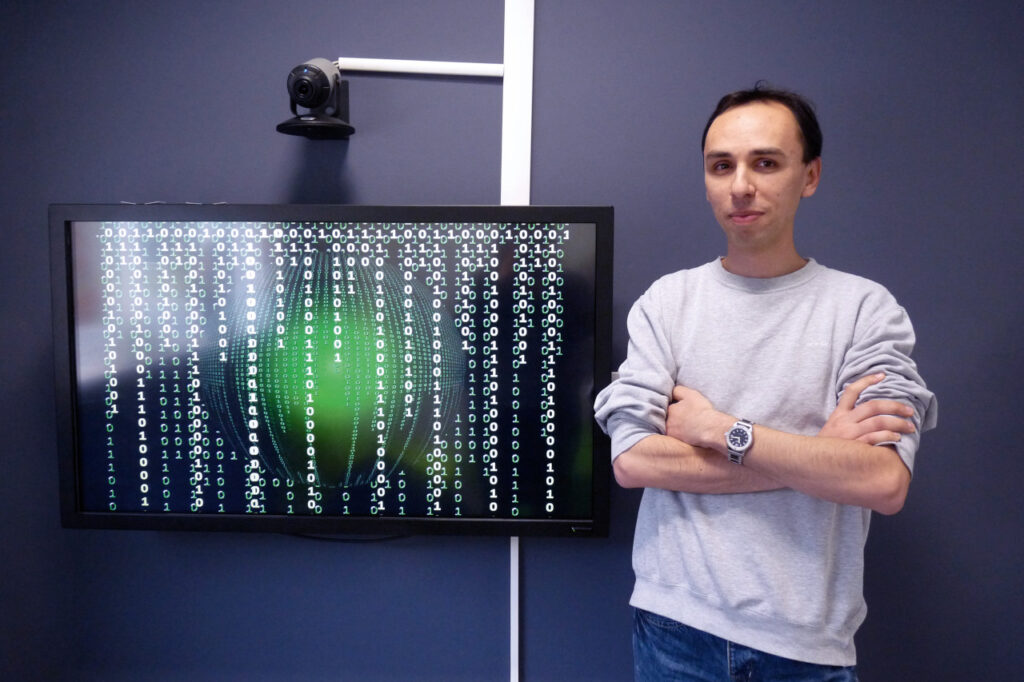[LUM#4] An open web
An essential tool in our daily lives, the internet remains largely inaccessible to the visually impaired. To break down these barriers, Yoann Bonavero is turning to artificial intelligence. Helping visually impaired people access the internet is the subject of Yoann Bonavero's thesis, which he defended in November 2015.

A brilliant idea that meets a huge need. In France, where one in every 100 people suffers from visual impairment, less than 4% of government websites are accessible to the visually impaired. These needs are not limited to France: worldwide, more than 246 million people suffer from vision problems.
Vital canvas
These individuals now face significant challenges in accessing content available online. However, the internet is becoming increasingly essential, as Yoann Bonavero points out: "Access to services is increasingly moving online. The internet has therefore become vital, particularly for older individuals, who may find it difficult to visit government offices."
Yoann himself has a visual impairment. "My eyesight is deteriorating, and I am finding it increasingly difficult to access web pages properly." Of course, he continues, "there are tools available to adapt a workstation. But most of them are designed for very general cases and cannot be configured to meet specific needs."
Identify useful information
However, there are"as many types of visual impairment as there are individuals, " explains Yoann: "There are many different conditions, and different ways of coping and adapting." In 2011, while studying for a master's degree in computer science at the University of Montpellier, Yoann proposed an original thesis project. He imagined a solution using artificial intelligence: a computer interface capable of adapting to the specificities of each visual impairment.
The challenge: to help each user identify the content that is useful to them on any web page. A real headache... Especially since the web doesn't make it easy. The proliferation of information is only a minor obstacle. There are more serious issues... Far from taking accessibility criteria into account, most websites tend to make access to content increasingly complicated ...
"Information is deliberately buried among numerous distracting elements," explains Yoann Bonavero: pop-up ads, commercial links, redundant information, sponsored links... With a little practice, an able-bodied person can find their way around. For a visually impaired person, useful information tends to become like a needle in a haystack!"
Custom tool
With his thesis now complete, Yoann is very close to finding a solution. "The tool uses optimization algorithms that incorporate the user's personalization preferences: font size, contrast level, use of colors and grayscale, etc. It also identifies the menu, the navigation context, and more."
The project has already demonstrated its feasibility in tests. To continue it, Yoann Bonavero has signed a one-year contract with the Montpellier Laboratory of Computer Science, Robotics and Microelectronics (Lirmm). His goal is to develop and generalize an interface that could change the lives of millions of Internet users.
Find UM podcasts now available on your favorite platform (Spotify, Deezer, Apple Podcasts, Amazon Music, etc.).